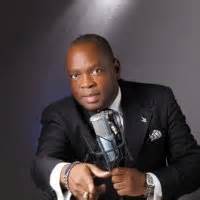Mastering the Art of Public Speaking: Why it is vitally important to improve your vocabulary as a public speaker


By Spence M. Finlayson
I was fortunate to attend a catholic private high school in Nassau, Bahamas called, St. Augustine’s College, where we were given vocabulary books with a long list of words that we had to not only know the definition of these words but also know the proper way of pronouncing them.
We would be pacing up and down the corridor outside of the classroom practicing the words before our vocabulary test. I can still see my classmates from the Class of 1973, Craig Tony Gomez, Ken Major, Clive Gaskins, and Rembert Albury, testing each other.
Looking back now, this was the building blocks for my fairly good vocabulary as an international motivational speaker.
You can’t build up a vocabulary if you never meet any new words. And to meet them you must read. The more you read the better, the more you learn new words.
It was the great Spence Winston Churchill who said ‘Your understanding of what you read and hear is, to a very large degree, determined by your vocabulary, so improve your vocabulary daily.”
An extensive vocabulary gives you the opportunity to impress your audience, keeping in mind that, if you use very big words, they might just go over the head of your audience. Always use words that make sense to your audience.
The overuse of a word to describe a wide range of seemingly unrelated things saps it of any meaning. If a corn dog, a YouTube video, a job promotion, and the Great Wall of China are all “awesome,” then awesome ceases to have any meaning at all.
Think of your vocabulary like the dial on an amp – if it’s always turned up to 11, you don’t have anywhere to go when trying to describe something truly impressive. Your only resort is to add empty intensifiers: “But seriously, it was really awesome.” The less you use what should be a meaningful word, the more potent it becomes (this goes for swear words too, by the way).
Conversely, a nimble working vocabulary gives you the ability to make finer and finer distinctions between things so that you can say exactly what you mean, and be explicit instead of vague when sharing your ideas and opinions or simply making conversation. This increases your chances of having other people understand what you wish to express, and at the same time it…
Helps you understand other people.
Building your vocabulary involves more than just memorizing lists of the kinds of words you had to know for the SAT. Just as learning a second language can help you understand people from other countries, increasing your working vocabulary allows you to understand those who may share your mother tongue but also have a special “dialect” of their own. People’s fields of work and interests often come with special terminology that isn’t as commonly known. The more of these “special” words you learn, the greater the variety of people you can connect with.
Not only does a diverse vocabulary allow you to build rapport with a wide range of people, but knowing some medical, legal, and other technical/professional lingo can prevent you from being taken advantage of, and allow you to be proactive in your approach to dealing with doctors, lawyers, mechanics, customer service, and so on.
Helps you understand what you read.
Vocabulary not only aids you in understanding other people, it’s also essential in comprehending the books and articles you read. Words you’re unfamiliar with become little holes in the text, preventing you from reaching a complete understanding of what you’re reading.
Assists you in becoming a more informed and involved citizen.
Related to the two points above, the more you increase your vocabulary in general, and also specifically in areas like politics, geography, the military, and so on, the better able you become to understand news and currents events, and the more widely varied the conversations, discussions, and debates you can jump into. And when you do take part in a debate, you’ll be able to use – gasp! – facts, instead of heated bloviations.
Bolsters your ability to grasp ideas and think more logically and incisively.
While we often think of our thoughts as shaping our words, it works the other way around as well. Think of words like a set of tools – a small vocabulary is like trying to carve a sculpture with only a chainsaw, versus using a whole set of different instruments that can make both broad and fine cuts. The greater the number of words at your disposal, the more instruments you have with which to hone your own ideas, and dissect and examine those of others.
Allows you to communicate effectively.
A masterful command of words, and the ability to select just the right ones to express a specific idea, for a particular audience (more on this below), is essential in crafting powerful and engaging speech and writing. The repetition of the same words over and over again quickly bores people, while the skilled use of a wide array of them enables you to draw people in and paint a rich picture. This is why an expansive vocabulary is one of the keys for great leaders – words allow you to grab the interest, and then allegiance, of others.
And a robust vocabulary is just as important when you’re operating off the cuff as when your remarks are pre-planned – instead of hemming and hawing, searching for the right words to say, you can express yourself forcefully and with confidence.
Boosts your powers of persuasion.
It’s hard to get people interested in an idea – whether a tangible product, a business pitch, or a piece of philosophy — and convince them of it unless you 1) understand it inside and out yourself, and 2) can describe it to others in an engaging way (see the two points above). Repeating the same word over and over again (“I’ve got this cool idea. See, it’s got this cool wheel here and then this really cool axle stick outs…”) is going to have the eyes of your audience quickly glazing over. It certainly won’t help you sell them on something, or on yourself — issuing banalities in a job interview (“I’m a hard worker and a people person!”) won’t do anything to set you apart from the myriad of other hard working, people-pleasing candidates.
Helps you make a good impression on others.
How articulate you are constitutes a big part of the impression you make on others. Based on the vocabulary you use, people will make judgments about your socioeconomic background, education, occupation, and the stimulation and demands of your everyday life (a stay-at-home mom sometimes starts using baby language when talking with adults, while a professor may drop very academic terms into casual conversation).
It’s not a particularly unfair judgment to make. Your schooling, circle of friends, job, and reading habits do have a direct and considerable effect on your vocabulary. But that doesn’t mean that if you’re a construction worker or don’t have many years of schooling, that a sizable vocabulary is out of reach. Building your vocabulary is a very egalitarian pursuit: anybody can do it, and can start anytime.
Malcolm X serves as a great example of this, and many of the above points as well. His formal education ended in junior high, and as a young man he fell into a life of crime and was eventually arrested and put in prison for burglary.
As he recalled in his autobiography, behind bars X (then named Malcolm Little), came under the mentorship of a fellow prisoner, whose self-education Little envied, and who motivated him to get some “homemade education” for himself.
Little was particularly frustrated that he was unable “to express what I wanted to convey in letters that I wrote…In the street, I had been the most articulate hustler out there — I had commanded attention when I said something. But now, trying to write simple English, I not only wasn’t articulate, I wasn’t even functional.” Little was also vexed by his difficulty in reading: “Every book I picked up had few sentences which didn’t contain anywhere from one to nearly all of the words that might as well have been in Chinese. When I just skipped those words, of course, I really ended up with little idea of what the book said.”
He was motivated to turn this around for himself, and so requested some tablets, pencils, and a dictionary from the prison. After rifling through the dictionary’s countless pages, amazed at the number of words he didn’t know and confused about which he needed to learn, Little turned to the first page of entries and started slowly and painstakingly copying each and every one of them by hand, “down to the punctuation marks.” It took him a whole day to inscribe one page, after which he read the words back to himself over and over again.
Malcolm woke up the next morning “thinking about those words — immensely proud to realize that not only had I written so much at one time, but I’d written words that I never knew were in the world. Moreover, with a little effort, I also could remember what many of these words meant. I reviewed the words whose meanings I didn’t remember.”
He repeated the same process over and over again, going page by page through the dictionary copying every single word, until finally he had copied the entire tome. This exercise did not take long to bear the prisoner rich fruits:
“I suppose it was inevitable that as my word-base broadened, I could for the first time pick up a book and read and now begin to understand what the book was saying. Anyone who has read a great deal can imagine the new world that opened.”
Little became a voracious reader, devouring every book the prison library had to offer. Once he had served out his sentence, his vocabulary studies transformed him into an articulate speaker, known for his incisive rhetoric.
Even those who didn’t agree with what he had to say were impressed with how he said it. As he himself recalled, “Many who today hear me somewhere in person, or on television, or those who read something I’ve said, will think I went to school far beyond the eighth grade. This impression is due entirely to my prison studies.”
The good news here is not only that anyone who has the discipline and motivation to build their vocabulary can succeed, but there’s a much easier way of doing it than copying down the entire dictionary!
There are a lot of good strategies for building your vocabulary — learning the meaning of suffixes, prefixes, and roots of words, going through word lists and making flash cards for the words you don’t know, and signing up for a daily “Word of the Day” email from a website like Merriam-Webster.com, to name a few.



